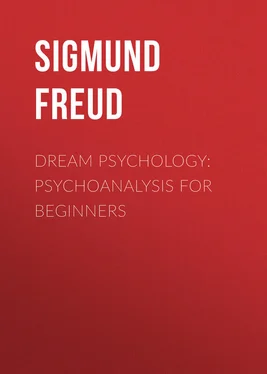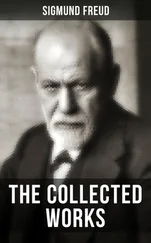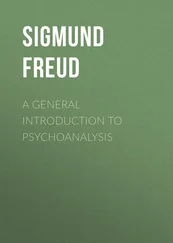Sigmund Freud - Dream Psychology - Psychoanalysis for Beginners
Здесь есть возможность читать онлайн «Sigmund Freud - Dream Psychology - Psychoanalysis for Beginners» — ознакомительный отрывок электронной книги совершенно бесплатно, а после прочтения отрывка купить полную версию. В некоторых случаях можно слушать аудио, скачать через торрент в формате fb2 и присутствует краткое содержание. Жанр: foreign_antique, foreign_prose, на английском языке. Описание произведения, (предисловие) а так же отзывы посетителей доступны на портале библиотеки ЛибКат.
- Название:Dream Psychology: Psychoanalysis for Beginners
- Автор:
- Жанр:
- Год:неизвестен
- ISBN:нет данных
- Рейтинг книги:4 / 5. Голосов: 1
-
Избранное:Добавить в избранное
- Отзывы:
-
Ваша оценка:
- 80
- 1
- 2
- 3
- 4
- 5
Dream Psychology: Psychoanalysis for Beginners: краткое содержание, описание и аннотация
Предлагаем к чтению аннотацию, описание, краткое содержание или предисловие (зависит от того, что написал сам автор книги «Dream Psychology: Psychoanalysis for Beginners»). Если вы не нашли необходимую информацию о книге — напишите в комментариях, мы постараемся отыскать её.
Dream Psychology: Psychoanalysis for Beginners — читать онлайн ознакомительный отрывок
Ниже представлен текст книги, разбитый по страницам. Система сохранения места последней прочитанной страницы, позволяет с удобством читать онлайн бесплатно книгу «Dream Psychology: Psychoanalysis for Beginners», без необходимости каждый раз заново искать на чём Вы остановились. Поставьте закладку, и сможете в любой момент перейти на страницу, на которой закончили чтение.
Интервал:
Закладка:
The motives for this part of the dream work are easily gauged. This final elaboration of the dream is due to a regard for intelligibility – a fact at once betraying the origin of an action which behaves towards the actual dream content just as our normal psychical action behaves towards some proffered perception that is to our liking. The dream content is thus secured under the pretense of certain expectations, is perceptually classified by the supposition of its intelligibility, thereby risking its falsification, whilst, in fact, the most extraordinary misconceptions arise if the dream can be correlated with nothing familiar. Every one is aware that we are unable to look at any series of unfamiliar signs, or to listen to a discussion of unknown words, without at once making perpetual changes through our regard for intelligibility , through our falling back upon what is familiar.
We can call those dreams properly made up which are the result of an elaboration in every way analogous to the psychical action of our waking life. In other dreams there is no such action; not even an attempt is made to bring about order and meaning. We regard the dream as "quite mad," because on awaking it is with this last-named part of the dream work, the dream elaboration, that we identify ourselves. So far, however, as our analysis is concerned, the dream, which resembles a medley of disconnected fragments, is of as much value as the one with a smooth and beautifully polished surface. In the former case we are spared, to some extent, the trouble of breaking down the super-elaboration of the dream content.
All the same, it would be an error to see in the dream façade nothing but the misunderstood and somewhat arbitrary elaboration of the dream carried out at the instance of our psychical life. Wishes and phantasies are not infrequently employed in the erection of this façade, which were already fashioned in the dream thoughts; they are akin to those of our waking life – "day-dreams," as they are very properly called. These wishes and phantasies, which analysis discloses in our dreams at night, often present themselves as repetitions and refashionings of the scenes of infancy. Thus the dream façade may show us directly the true core of the dream, distorted through admixture with other matter.
Beyond these four activities there is nothing else to be discovered in the dream work. If we keep closely to the definition that dream work denotes the transference of dream thoughts to dream content, we are compelled to say that the dream work is not creative; it develops no fancies of its own, it judges nothing, decides nothing. It does nothing but prepare the matter for condensation and displacement, and refashions it for dramatization, to which must be added the inconstant last-named mechanism – that of explanatory elaboration. It is true that a good deal is found in the dream content which might be understood as the result of another and more intellectual performance; but analysis shows conclusively every time that these intellectual operations were already present in the dream thoughts, and have only been taken over by the dream content . A syllogism in the dream is nothing other than the repetition of a syllogism in the dream thoughts; it seems inoffensive if it has been transferred to the dream without alteration; it becomes absurd if in the dream work it has been transferred to other matter. A calculation in the dream content simply means that there was a calculation in the dream thoughts; whilst this is always correct, the calculation in the dream can furnish the silliest results by the condensation of its factors and the displacement of the same operations to other things. Even speeches which are found in the dream content are not new compositions; they prove to be pieced together out of speeches which have been made or heard or read; the words are faithfully copied, but the occasion of their utterance is quite overlooked, and their meaning is most violently changed.
It is, perhaps, not superfluous to support these assertions by examples:
1. A seemingly inoffensive, well-made dream of a patient. She was going to market with her cook, who carried the basket. The butcher said to her when she asked him for something: "That is all gone," and wished to give her something else, remarking; "That's very good." She declines, and goes to the greengrocer, who wants to sell her a peculiar vegetable which is bound up in bundles and of a black color. She says: "I don't know that; I won't take it."
The remark "That is all gone" arose from the treatment. A few days before I said myself to the patient that the earliest reminiscences of childhood are all gone
Конец ознакомительного фрагмента.
Текст предоставлен ООО «ЛитРес».
Прочитайте эту книгу целиком, купив полную легальную версию на ЛитРес.
Безопасно оплатить книгу можно банковской картой Visa, MasterCard, Maestro, со счета мобильного телефона, с платежного терминала, в салоне МТС или Связной, через PayPal, WebMoney, Яндекс.Деньги, QIWI Кошелек, бонусными картами или другим удобным Вам способом.
1
"Ich möchte gerne etwas geniessen ohne 'Kosten' zu haben." A a pun upon the word "kosten," which has two meanings – "taste" and "cost." In "Die Traumdeutung," third edition, p. 71 footnote, Professor Freud remarks that "the finest example of dream interpretation left us by the ancients is based upon a pun" (from "The Interpretation of Dreams," by Artemidorus Daldianus). "Moreover, dreams are so intimately bound up with language that Ferenczi truly points out that every tongue has its own language of dreams. A dream is as a rule untranslatable into other languages." – TRANSLATOR.
2
It is worthy of remark that eminent philologists maintain that the oldest languages used the same word for expressing quite general antitheses. In C. Abel's essay, "Ueber den Gegensinn der Urworter" (1884, the following examples of such words in England are given: "gleam – gloom"; "to lock – loch"; "down – The Downs"; "to step – to stop." In his essay on "The Origin of Language" ("Linguistic Essays," p. 240), Abel says: "When the Englishman says 'without,' is not his judgment based upon the comparative juxtaposition of two opposites, 'with' and 'out'; 'with' itself originally meant 'without,' as may still be seen in 'withdraw.' 'Bid' includes the opposite sense of giving and of proffering." Abel, "The English Verbs of Command," "Linguistic Essays," p. 104; see also Freud, "Ueber den Gegensinn der Urworte"; Jahrbuch für Psychoanalytische und Psychopathologische Forschungen , Band II., part i., p. 179). – TRANSLATOR.
Интервал:
Закладка:
Похожие книги на «Dream Psychology: Psychoanalysis for Beginners»
Представляем Вашему вниманию похожие книги на «Dream Psychology: Psychoanalysis for Beginners» списком для выбора. Мы отобрали схожую по названию и смыслу литературу в надежде предоставить читателям больше вариантов отыскать новые, интересные, ещё непрочитанные произведения.
Обсуждение, отзывы о книге «Dream Psychology: Psychoanalysis for Beginners» и просто собственные мнения читателей. Оставьте ваши комментарии, напишите, что Вы думаете о произведении, его смысле или главных героях. Укажите что конкретно понравилось, а что нет, и почему Вы так считаете.












